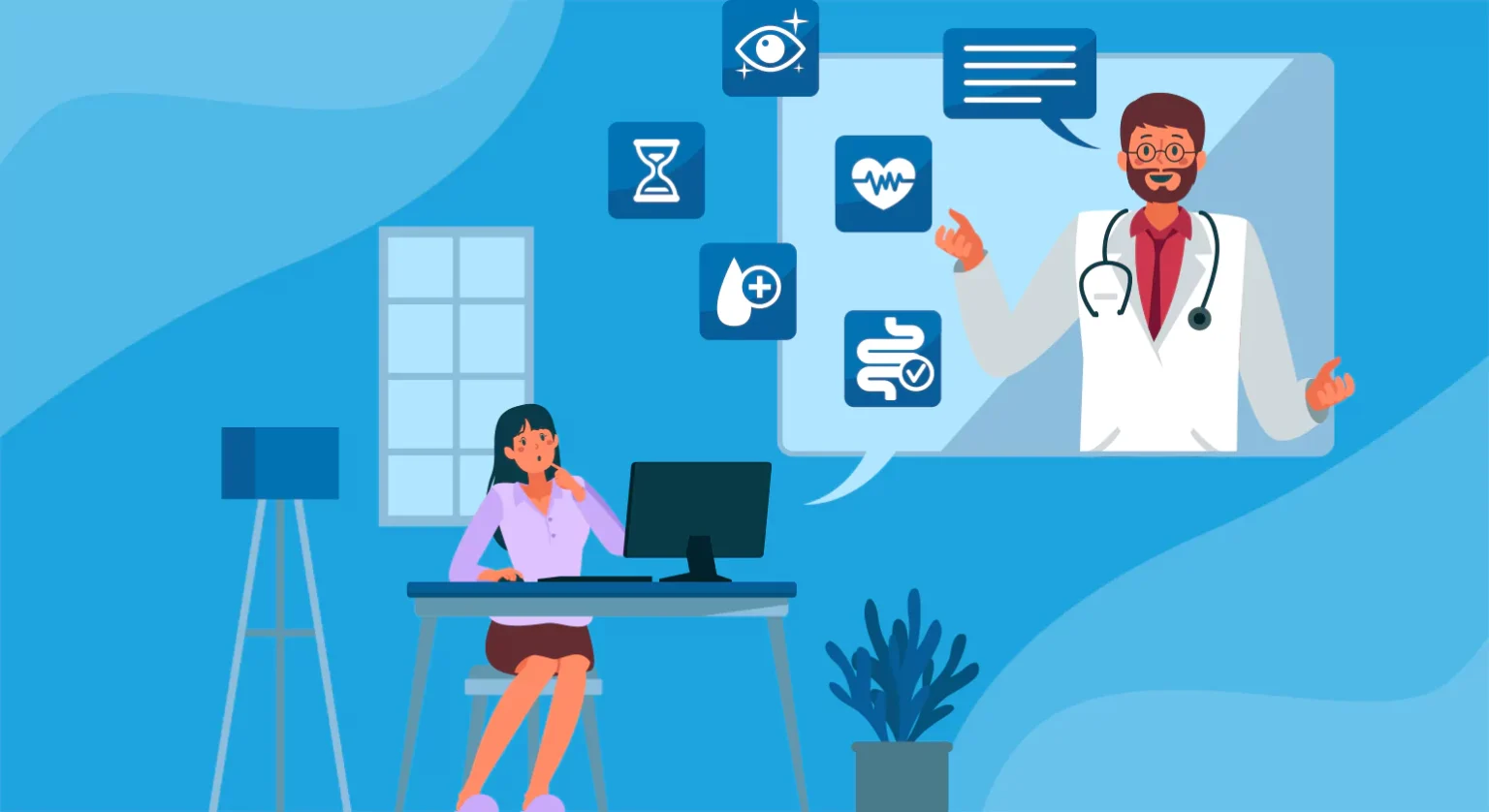Because of the fast advancements in healthcare, technology is greatly changing how people interact with their medical care. That transformation is being driven in part by Medical Virtual Assistants (MVAs). Because of these digital guides, people now have much easier, more accessible and personalized options when seeking healthcare.
Here, we begin to explore how mobile clinical teams or MVAs, are a key part of healthcare today. Our focus will be on what they are capable of, the big influence they have on patients and how AI helps make them smarter and more efficient. Case studies will highlight the noticeable advantages of MVAs experienced by both healthcare providers and patients.
Gaining an insight into Medical Virtual Assistants
Medical Virtual Assistants (MVAs) are a new category of healthcare companions meant to help both patients and healthcare providers. Such intelligent applications use NLP and AI to communicate with people, process their inquiries and respond with appropriate assistance or advice.
Among virtual assistants, MVAs explain well why medical industries rely on them. Some of the options include being able to make appointments, reminders for taking medicine, access to health details and symptom analysis. By using MVAs in mobile apps, websites and wearables, patients can get treatment, support and education everywhere.
It is important to know how MVAs function and what they are capable of to value their transformative impact on healthcare. As we keep discussing, we will examine how MVAs are enhancing the way patients receive care and how healthcare has evolved.
Patient-Related Effects
Medical Virtual Assistants (MVAs) are transforming how patients interact with healthcare. A major change is more people having access to healthcare. Telehealth and virtual consultations are made possible by MVAs which remove spatial limits and allow patients to get care at any time of day. Patients no longer have to go to the hospital to talk to a medical professional.
Better interaction and involvement are also important advantages. With MVAs, individuals receive specific health details, alerts for medicines and regular follow-ups to keep them following their treatment plans. Moreover, nurses help patients by teaching them about good health, giving helpful tips on lifestyle and offering support.
What’s important is that this change motivates patients to look after and manage their health. Looking into the effects of MVAs on patients, we will examine how they are aiding in better communication and engagement within healthcare which results in higher quality outcomes.
How Artificial Intelligence Is Part of Medical Virtual Assistants
Artificial Intelligence (AI) is central to how Medical Virtual Assistants (MVAs) operate. Because of Natural Language Processing (NLP), MVAs can converse with patients and give appropriate responses to their questions. It enhances the way people use the system and provides faster access to healthcare details.
Because of machine learning, MVAs can match their responses and recommendations to each individual patient. Predictive analytics look at patient data so that changes can be spotted early on with useful insights. An MVA might identify that a diabetic’s blood sugar could rise by considering past records and recommend preventive action.
With AI, the MVA can act much like a virtual healthcare partner, improving its support for patients and providers over time. Through examining AI in MVAs, we can see how technology is helping healthcare to become more effective and proactive.
Examples of How Neurology Improves Real Lives
The benefits of Medical Virtual Assistants (MVAs) for patients are real and supported by real success stories. Hospitals and clinics that have started using MVAs are seeing excellent outcomes.
An example of this can be seen in Hospital A which put an MVA in place for organizing appointments and sending reminder texts about medication. The number of missed appointments dropped considerably in the hospital, improving both resource efficiency and the way patients took part in healthcare plans.
Clinic B set up an MVA that provides customized health advice and answers patients’ questions about signs and symptoms. Patients were more aware of their health problems and how to manage them which improved their satisfaction.
They prove that having Medical virtual assistants in healthcare is very rewarding. They are more than devices; they assist in enhancing how patients feel and how well health outcomes are achieved.
Considering Problems and Issues of Morality
Even though Medical Virtual Assistants (MVAs) are expected to bring better care, they also have some challenges to deal with. Ensuring data is protected is a major fear. Sensitive patient information is handled in MVAs and securing it is extremely important. Good cybersecurity systems and following strict regulations ease the process of protecting patient data.
Providing MVAs to all learners on an equal basis is very important too. Some patients may not be able to use mobile apps because they do not have smartphones or internet access which may lead to inequity in healthcare. All patients should be able to access MVAs,independent of their economic status.
Meanwhile, it is important that MVAs do not take away the human side of medical care. Although technology brings convenience and helps people, personal connection and empathy are very important in healthcare. Balancing between new technologies and the importance of human involvement is very important.
As we focus on these topics and concerns, we will examine how healthcare providers are dealing with them to make sure MVAs are beneficial to the community.
Innovations and Future Trends
Medical Virtual Assistants (MVAs) are still developing and improving. In the years to come, different new trends and innovations will likely boost how well they support healthcare.
A key trend involves always enhancing the abilities of MVAs. With better AI, machine learning algorithms will help MVAs make more precise diagnoses, suggest proper treatment and predict health-related issues.
Linking patients’ records to Electronic Health Records (EHR) is a valuable development. This means MVAs can update patient records easily which helps different healthcare professionals work together better.
Newly, voice-activated MVAs are becoming available, so patients can interact with these healthcare companions more easily using normal language.
The future of MVAs can bring many new ideas and as we learn about these changes, we understand how healthcare and patient care are advancing.
Conclusion
Medical Virtual Assistants (MVAs) are changing the story of how patients manage their care in healthcare. Their worth is seen in how they help people get better access, are more involved and enjoy customized care. Because of MVAs, patients can make better choices for their health which improves their results and satisfaction.
Thanks to Natural Language Processing and Machine Learning, AI gives intelligence to MVAs which helps them provide a personalized experience for users. Examples in real life prove that they can change things for the better.
Still, there are proper concerns about MVAs such as data security, fair access and making sure that humans remain in healthcare. Attending to these matters is essential for making sure that MVAs are used appropriately in healthcare.



